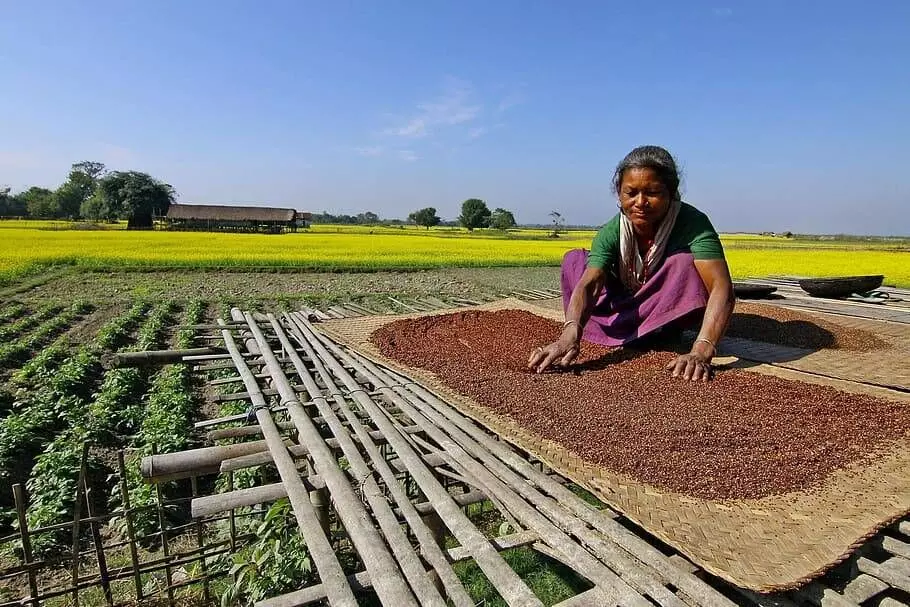Activists Urge Supreme Court Of India to Ban Genetically Modified Mustard
Environmental activists from the Coalition for a GM-Free India have appealed to the apex court to curb the genetically modified herbicide-tolerant crops. The activists allege that crops like GM mustard have the potential to jeopardise food safety on a large scale.
 गाँव कनेक्शन 26 Sep 2023 10:36 AM GMT
गाँव कनेक्शन 26 Sep 2023 10:36 AM GMT

The Union government has been arguing in the apex court that the regulatory regime is robust and all laid down rules, regulations and guidelines have been followed in appraising GM mustard.
A group of activists has appealed to the Supreme Court to pass orders to effectively ban the herbicide-tolerant crops such as GM Mustard across the country.
The activists belong to the Coalition for a GM-Free India which is an informal nation-wide network of organisations and individuals concerned about the environmental release of genetically modified organisms [GMOs].
A press statement issued by the coalition on September 24 mentioned that the apex court had constituted a Technical Expert Committee [TEC] which also had two representatives from the Union government.
The Coalition pointed out that the TEC has recommended a complete ban on herbicide tolerant crops in India, given the multiple adverse impacts of such crops in India’s agricultural production systems.
Column: Danger ahead as GM Mustard gets a go ahead; matter before the apex court
The Union government has been arguing in the apex court that the regulatory regime is robust and all laid down rules, regulations and guidelines have been followed in appraising GM mustard.
“However, this is simply untrue and the Coalition has brought out an elaborate report on the numerous Constitutional, Legal and other violations that have accompanied the appraisal and approval of GM HT mustard of Delhi University,” the press statement mentioned.
“These violations and scientific compromises were essentially to hide the lack of safety of GM mustard. For this purpose, the regulator Genetic Engineering Appraisal Committee chose to violate both the Supreme Court order asking for all biosafety data to be published on its website as well as CIC Orders. In fact, in both cases, the regulator gave an undertaking that it will publish the said data, but this has been kept hidden to this day,” it added.
Also Read: Uttar Pradesh: Mustard farmers feel the sting as early heatwaves likely to affect crop yield
The coalition also alleged that unlike the widespread consultative processes that governed decision making with regard to Bt brinjal in 2009-2010, and that respected the Constitutional authority of state governments over Agriculture and Health, the current Union government is trying to stifle the views and policy positions of state governments.
“While brinjal is grown on about 6-8 lakh hectares in the country, rapeseed-mustard is grown on about 100 lakh hectares! While there were more tests conducted on Bt brinjal (even though those were not comprehensive or rigorous), GM mustard bypassed such testing too,” the activists mentioned.
Also Read: When women dance like mustard seeds: Come, sway to the Rai folk dance of Bundelkhand
The coalition highlighted that there is hardly a kitchen in India which does not use mustard, and this approval of a transgenic herbicide tolerant version of Indian mustard has the potential to jeopardise food safety on a very large scale.
mustard farming Mustard GMO gm crop
More Stories




